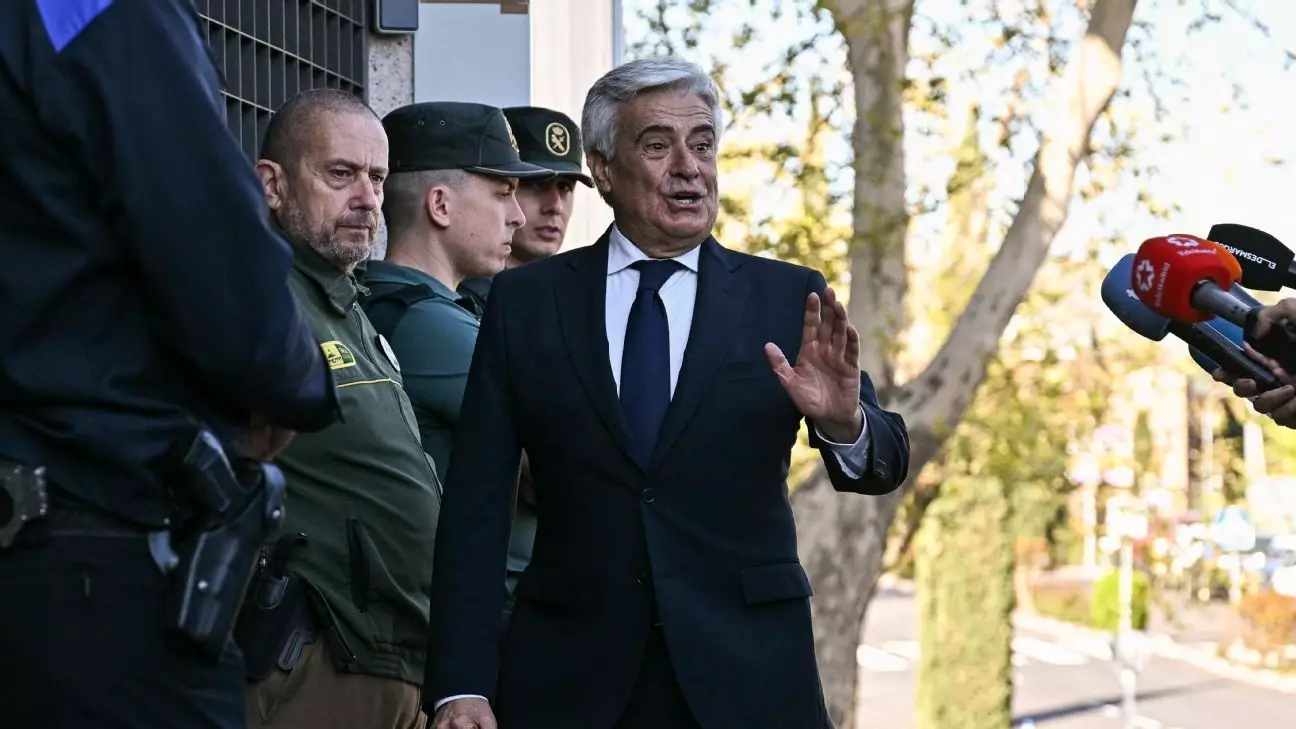Spanish football federation (RFEF) president Pedro Rocha has been denied a request for a temporary injunction against his suspension, leaving him unable to continue in the position without an urgent appeal. In July, Rocha was suspended from holding management positions in sporting bodies for two years by the country’s Administrative Sports Court (TAD) for exceeding his authority in decisions made after the departure of his predecessor, Luis Rubiales. This decision has now left Rocha unable to stand in the RFEF’s upcoming presidential elections.
Despite Rocha’s argument that not granting the injunction would leave him unable to participate in the elections, the request was refused by Madrid’s National High Court. The judge emphasized that Rocha failed to provide evidence to support his claim of suffering “irreparable damage” without the injunction. The judge highlighted the lack of evidence of the damages invoked, especially since the elections for the RFEF General Assembly had not yet been called.
Rocha’s Reign Comes to an End
Unless Rocha is successful in an urgent appeal, he will not be able to stand for president this month, effectively ending his brief tenure in charge of Spanish football’s governing body. Rocha took over as acting president when Rubiales resigned in 2023, following a criminal investigation and FIFA suspension over inappropriate conduct. During his time in charge, Rocha, along with a committee, implemented various reforms within the federation, including the dismissal of the secretary general.
Reforms and Controversies
One of the key decisions made by Rocha that led to his suspension was the firing of then-secretary general Andreu Camps, which was deemed to be beyond his authority. The Administrative Sports Court labeled the offense as “very serious,” further complicating Rocha’s position within the RFEF. The federation, who is crucial in the organizing of the 2030 World Cup, is facing challenges with internal management and leadership.
As Spain gears up to co-host the 2030 World Cup alongside Portugal and Morocco, the future of the RFEF is at a crossroads. The recent controversies surrounding Rocha’s suspension and the subsequent legal battles have raised questions about the governance and decision-making processes within the federation. It remains to be seen how the RFEF will navigate these challenges and prepare for its role in one of the biggest sporting events on the global stage.
The case of Pedro Rocha serves as a cautionary tale about the importance of proper governance and adherence to rules and regulations within sporting organizations. The internal turmoil within the Spanish football federation underscores the need for transparency, accountability, and ethical leadership in shaping the future of the sport in the country.

Leave a Reply